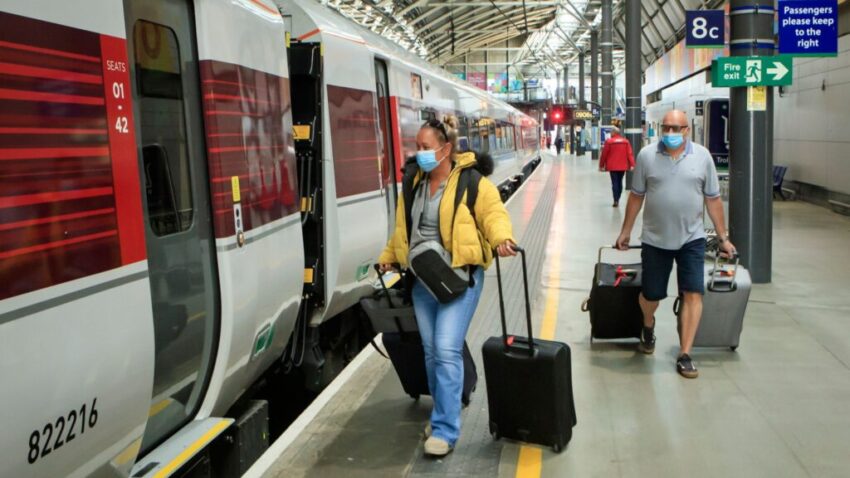Rail services in Britain will be reduced to 72% of pre-pandemic levels over the next few weeks, and passengers are being asked to check before they travel that their service is running.
The cuts, which will be announced from Thursday, are less than the 50% reduction in services that had been expected. Train operators have focused on retaining services at morning and evening peak travel times so that key workers such as NHS staff can get to their workplace.
The rail industry argues that the timetable cuts will mean a more reliable service for passengers because rail staff can catch the virus like other key workers and cause disruption to more extensive schedules.
Rail companies were effectively nationalised last March when franchises were suspended. The rescue deal was extended in October, when emergency recovery contracts were agreed with rail operators ranging from six to 18 months, while the industry moves to a long-term overhaul. Ministers are anxious to curtail costs that have already risen to £9bn in additional subsidy since March.
Before fresh lockdowns were announced in England and Scotland on 4 January, rail services were running at 87% of pre-pandemic levels. According to provisional Department for Transport figures, passenger use of national rail was 17% of normal levels on Monday. The new Covid-19 rules instruct people to work from home wherever possible and have banned all non-essential travel.
During the first national lockdown last spring, rail services were cut to 55% of pre-Covid levels. However, passenger numbers fell by as much as 96% as people stayed home where possible. Between April and June, passenger journeys on Britain’s railways fell to the lowest level sine the mid-19th century. According to the rail industry regulator, 35m journeys were undertaken, which was just 8% of the total for the same period in 2019.
Following the first nationwide lockdown, a number of timetable changes were introduced to steadily increase services throughout last year as more people were able to travel again, and to increase space to allow physical distancing on trains.
Rail minister Chris Heaton-Harris said: “It is critical that our railways continue to deliver reliable services for key workers and people who cannot reasonably work from home, and that they respond quickly to changes in demand.
“The new reduced timetable delivers that, as well as reducing the financial burden on the taxpayer. Levels of services will vary by operator and changes will come into effect steadily over the next few weeks. Passengers who are using the railways, including those who need to travel to vaccination centres, should check their route before they travel, and aim to do so outside of peak times wherever possible.”
Rail companies have sought to make travel safer, by improving cleaning and installing modern air conditioning on the vast majority of trains so the air in carriages is replaced every six minutes to reduce the risk of Covid-19 transmission.
Since the start of the pandemic, rail companies have paid out more than £500m in ticket refunds to people who were unable to travel due to the pandemic. People whose travel plans have been affected by the new Covid-19 restrictions in January can change their date of travel, request a refund or apply for a travel voucher depending on the type of ticket they have purchased, said industry body the Rail Delivery Group.


